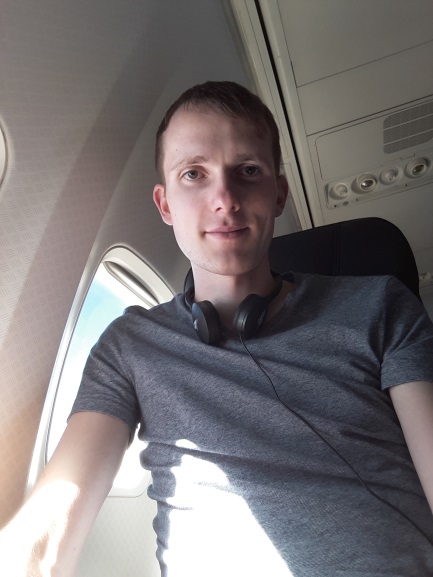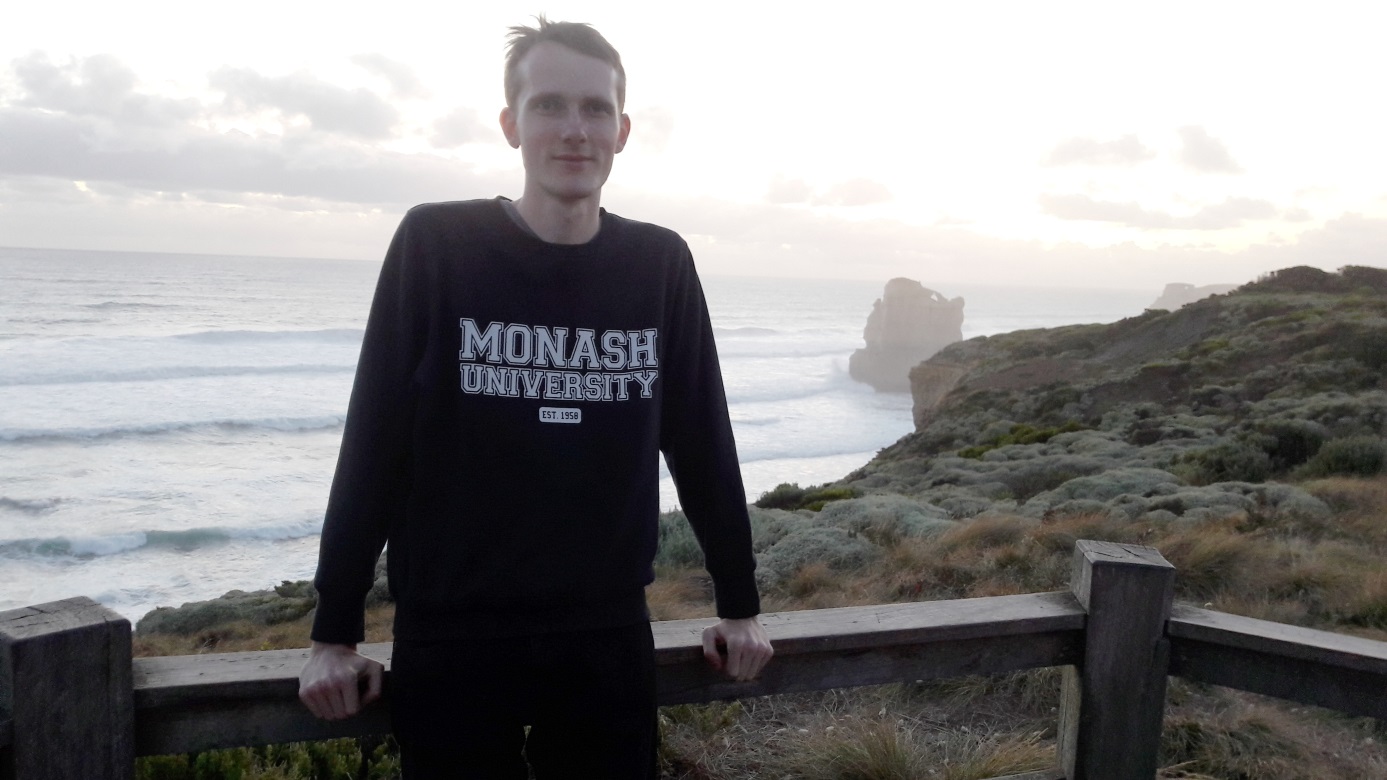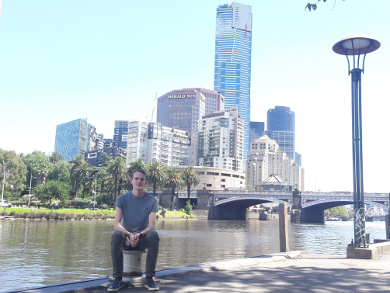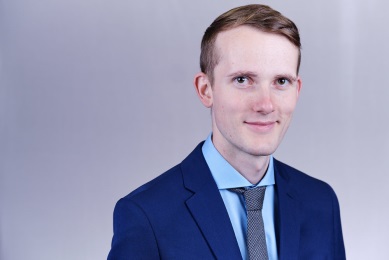Two countries, two supervisors, two labs, and one joint research project—that can be the daily life of a Ph.D. student. While my home institution is in Germany, I spend more than one year of my time as a graduate student in Australia. I am working on a Ph.D. across two continents.
This is only possible with the right funding and supervisors who are open to such an adventure. Persistence and the passion to convince decision makers to realize an arrangement like this are key for success. But why would someone do this and which advantages and challenges are associated with a joint Ph.D. project across continents?
Friends All Around the World
First of all, going abroad during your studies is the best chance to get to know people from different countries and with different cultural norms and customs. In a global world, such skills and the expanded worldview will benefit you both personally and for your career. Never do this for your CV, but for yourself! New perspectives can open your eyes and give you skills and ideas for your future.
I have spent large amounts of time during my chemistry Master’s studies and research in Australia. I appreciated the way of life and research at the universities there. Going to Australia and coming back to Germany multiple times since 2012, enabled me to notice the differences between both places. And I missed foods and daily customs from the other country each time. It also allowed me to form a more objective outside view on Germany.
During my studies, I was on the national Board of the German young chemists’ network (JCF, Jungchemikerforum) and I am now the Secretary of the European Young Chemists’ Network (EYCN). This work connected me with chemists from all around Germany, Europe, and—through student exchanges—from the United States. This wide network of connections and friends around the world is something that I would not want to miss.
Moving from Germany to Australia five times within the last six years, however, makes it challenging to keep family, close friends, and my partner happy. Modern ways of communication such as messaging and video chat apps make it possible to still keep in touch. It is challenging, but very important, to stay in contact with your colleagues and close friends.
More Than One Supervisor
My time in both Germany and Australia during my Master’s studies allowed me to meet supervisors at Leipzig University in Germany and at Monash University in Australia whom I was interested in working with for my Ph.D. research on amyloidogenic peptides. These peptides and their amyloid aggregates, also known as plaques, are closely related to several aging-associated diseases, such as Alzheimer’s Disease or type II diabetes.
Having multiple supervisors, far from each other, means that clear and open communication and trust are a must. The research goals need to be regularly discussed by e-mail and video conferences. Benefits of the joint supervision by multiple advisors are, e.g., the input of multiple experienced researchers and the opportunity to collaborate on projects with researchers from a broader network. I learned a lot of things that I would not have mastered with just one supervisor. It also enhanced my organizational skills, which are very relevant for such a project.
To spend more than a year abroad in another lab, around a third or fourth of the whole Ph.D. time, also means that the work there needs to be focused and relevant to the Ph.D. project. I know several students that spent a few weeks or months abroad. However, this was usually only a small part of the Ph.D. For a joint supervision, the work at both places needs to fit well into the overall Ph.D. research goals.
Whether the joint project is officially acknowledged by both universities with a joint degree at the end will depend on the policies of both universities. If there is not yet an agreement, then it might require some effort to establish such an agreement because it involves the schools, faculties, and leaders of both universities to agree. Having a joint degree from both universities can be beneficial for future work in both countries. However, it does not really matter for the research project. The most important thing is that the two supervisors, labs, and universities complement each other’s expertise to ensure a successful Ph.D.
Research Across Continents
Research across continents and time zones means that you spend more time with project management than others. This made me more independent. I worked on a higher number of sub-projects with more collaborators than I would have done at a single university. The time spent on organization also means that my Ph.D. project might take a few months longer but, as a consequence, I was trained in a wide range of skills beyond the lab work.

Conclusion: Advantages and Challenges
I am currently working in Australia again and spend the German winter in the Australian summer—a positive side effect. I have not yet finished my Ph.D., but I already know that I would do it like this again. Changing the lab gives me new inspiration and new ideas for my work. In such a way, I can understand research problems from different perspectives and I get new ideas myself and from my supervisors here and others at the School of Chemistry and Monash University.
A joint Ph.D. was the right option for me. However, it might not be the best way or appropriate for everyone and does not necessarily lead to more or fewer results than a “normal” Ph.D. project. Important for a successful Ph.D. project is a good balance between becoming independent on one side and advice from the supervisor on the other side. Further, it is important to be surrounded by a diverse range of other researchers and collaborators. Having good mentors, collaborating with excellent researchers, and being motivated by an excellent environment will nurture any research project. A project across continents almost guarantees independence and organizational skills if successful. To complete such a project, you need to be passionate about it or, at the very least, you should be doing it with an already established collaboration partner of your home institution or research group.
“All you have to do in life is be passionate and enthusiastic and you will have a wonderful life.”
(Steve Irwin, Australian zookeeper and TV personality)
|
During his studies, Torsten was active on the national Board of the German Young Chemists’ Network (JungChemikerForum; JCF) and is now the Secretary of the European Young Chemists’ Network (EYCN). He is a biophysical and computational chemist. |
Also of Interest
- Working for the JCF – The Young Chemists’ Forum of the German Chemical Society,
Vera Koester, Michael Linden, André Augustin, Torsten John, Carmen Schrapel,
ChemistryViews.org 2015.
https://doi.org/10.1002/chemv.201500082
Members of the national board about the work and aims of the JCF and their personal motivations - EYCN: Ten Years Connecting Young Chemists,
Fernando Gomollón-Bel, Camille Oger, Cristina Todasca,
ChemistryViews.org 2015.
https://doi.org/10.1002/chemv.201500500
Founded in 2006, today the European Young Chemists’ Network (EYCN) represents 26 chemical societies from 22 different countries - Introducing the European Young Chemist Network (EYCN),
European Young Chemists Network team,
ChemistryViews.org 2012.
https://doi.org/10.1002/chemv.201200122
The EYCN supports chemists as they begin their careers, with activities aimed at developing soft skills and broadening career possibilities

 Torsten John graduated with a B.Sc. and M.Sc. degree from Leipzig University, Germany. Currently, he is a Ph.D. student at the Leibniz Institute of Surface Engineering (IOM), Leipzig, Germany, Leipzig University, Germany, and Monash University, Clayton, Australia.
Torsten John graduated with a B.Sc. and M.Sc. degree from Leipzig University, Germany. Currently, he is a Ph.D. student at the Leibniz Institute of Surface Engineering (IOM), Leipzig, Germany, Leipzig University, Germany, and Monash University, Clayton, Australia. 


